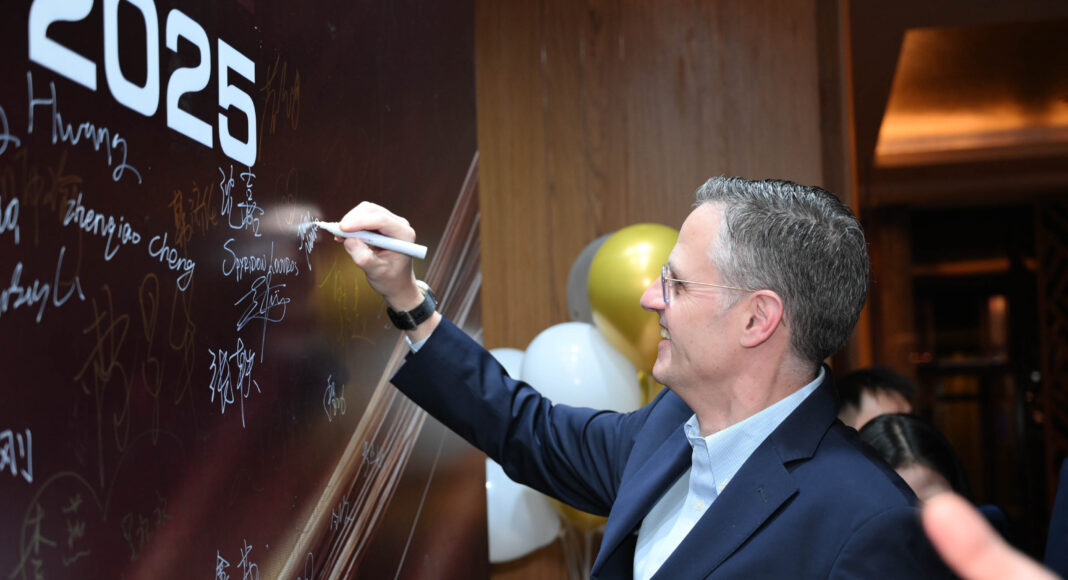With 6G standardization progressing, Qualcomm’s Vice President of Technical Standards discusses what it takes from a human perspective
Standards are important — 3GPP and other standardization bodies grind through the technical (and political) work that enables new technologies to reach global scale quickly and cost efficiently. While it may not occupy much mindshare among the end user of a particular device, standardization is what keeps this whole thing working. And behind these working groups, these releases, these standards, are very smart, very committed people who believe in what they’re doing and work unbelievably hard to do it. Here’s part of the story of one of those people: Qualcomm Vice President of Technical Standards Juan Montojo-Bennassar.
Montojo-Bennassar has been in his current position for more than seven years and with Qualcomm for nearly 29 years. He’s originally from Spain and splits time between his home country and San Diego, California, where Qualcomm is headquartered. Montojo-Bennassar has been married for 25 years and has a 16-year-old daughter and 14-year-old son. He leads Qualcomm’s activity at 3GPP, ETSI and other industry groups.
To give you an understanding of what it takes to do this work — the time commitment involved, and the mental tenacity required— see Montojo-Bennassar’s business travel schedule for a 33-day period covering portions of June and July:
- June 6: departed San Diego.
- June 9-13: attended the 3GPP RAN Plenary in Prague, Czechia, and worked through a Qualcomm global holiday.
- June 16: attended a 6G bilateral meeting in Helsinki, Finland.
- June 17-19: attended an ETSI board meeting in Sophia Antipolis, France.
- June 23-25: attended a 6G bilateral meeting and 3GPP elections in Beijing, China.
- June 30-July 2: attended a 6GIG meeting in Cambridge, United Kingdom.
- July 7: lectured doctoral students on 5G-Advanced and 6G in Catania, Italy.
- July 9: returned to San Diego.
And this travel schedule isn’t unusual. It’s the job. Montojo-Bennassar acknowledged, “It’s a lot of work. Pretty much you are always on the go…and while you are on the go, you have to be reachable. And you have to reach out to people…I love my job. [But] it’s a thin line — being super busy versus being stressed out.”
I talked to Montojo-Bennassar about his family life, the sacrifices he’s made for his career, and how that all works on a day-to-day basis. As I’m writing this, I just boarded a seven-hour flight that will kick off an eight-night work trip. I already miss my son and wife. I don’t really know how he (and people with similarly demanding careers) do it. His answer was simple and profound: “Innovation doesn’t come for free.”
This next bit is for the road warriors: Montojo-Bennassar is a million miler on both American Airlines and United Airlines, but he’s not precious about airline loyalty. “I prioritize time-wise and fare-wise convenience.” He prefers a window seat and his favorite airports (and terminals) are San Diego International Airport Terminal 2 and Madrid-Barajas Airport Terminal 4 “for their efficiency.” His favorite place to go for business travel is Nuremberg, Germany, where he was based for four years. Back to business.
Standardization work is fascinating once you understand what it really is. Of course it’s an exercise in establishing the technical consensus needed to foster advancements in a way that is economically viable. But it’s also deeply political — companies want their approach to win out and countries want their companies to dominate. This process is just as much about developing a tech advantage as it is about counting votes, whipping votes and otherwise turning soft, interpersonal skills into strategic advantage. It’s a complex, delicate thing.
Montojo-Bennassar talked me through the sheer gravity of levying objections within 3GPP, essentially taking a stand against consensus agreements and being viewed as blocking progress. He pointed out that 3GPP now begins meetings by reading a “consensus principles reminder.” The text is as follows:
“The attention of the delegates to the meeting is drawn to the fact that 3GPP endeavours to reach consensus on all decisions and therefore depends on a cooperative spirit of the individual members. In particular, individual members are encouraged to seek a consensus-based solution and only to sustain objections as a very last resort, and where absolutely necessary and well justified. The leadership will conduct the present meeting in a manner whereby informal methods of reaching consensus are encouraged, whilst ensuring that well justified concerns are taken into account.”
“I need to stand on my own two feet on the technical matters,” Montojo-Bennassar explained. Eventually, “You build credibility…This is something that you gain over time, you earn over time. It does take some courage to go to the mic in front of everybody — a packed room — and just say what you care about. But over email, it’s very cheap.”
As Qualcomm celebrates its 40th anniversary, and turns long-running foundational research and development work into what will ultimately be a 6G standard, Montojo-Bennassar reflected on what the company’s history means to him and how it informs his work. “Qualcomm has a very big name because of all we represent,” he said. “It’s not fake. It’s not made up…You do carry that flag of Qualcomm’s reputation. To me, basically it meant I had to live up to that reputation.”

